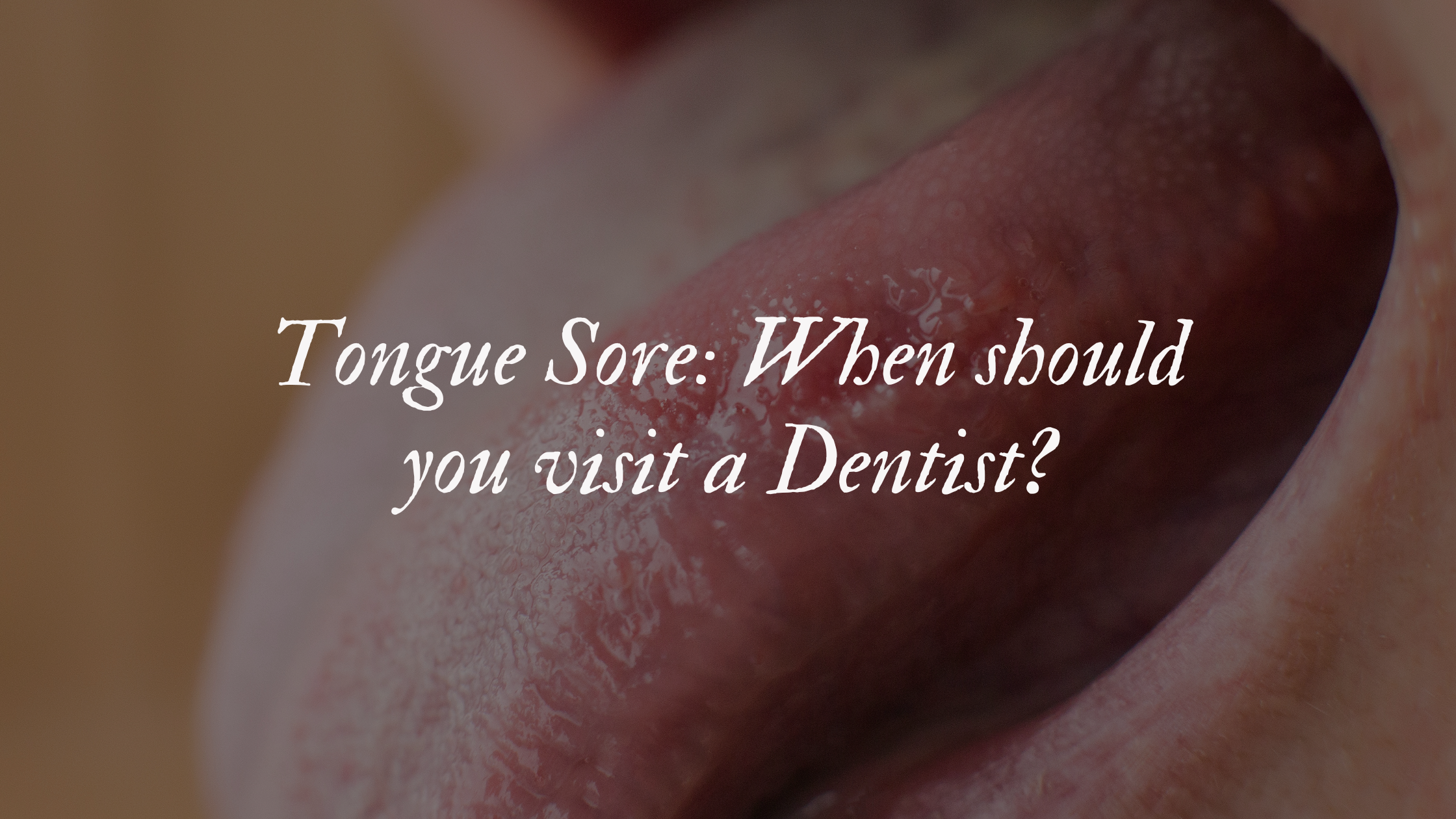 06 Sep 2022
06 Sep 2022 What is an oral sore?
Mouth sores are difficult to ignore. It becomes extremely painful as lesions formed in the soft tissues of the mouth make you face trouble while eating and speaking. These sores may appear in any part of your mouth that including the tongue, lips, gums, cheeks, the floor or the roof of your mouth. Anyone can have an oral sore any time, except a few special types of sores like Gingivostomatitis which mostly affects kids, and Leukoplakia or Lichen Planus which is common among old people.
Causes of oral sore
Oral sores can be of various types. The most common ones are cold sores and canker sores many of us have experienced these types of sores at some point or other. Now let us check what causes these sores. Here are they are:
- Sometimes incidentally we bite down our tongue, lip, or cheek which creates a sore.
- Irritation from braces or other orthodontic devices.
- We often hurt a part inside our mouth while brushing our teeth hard or a hard-bristled toothbrush might create a trauma also.
- Habit of using tobacco products is one of the important causes that remain responsible for oral sores.
- Stress is identified as another cause of this condition.
- Hot, quirky and acidic food also develops oral sores in many patients.
- Various other underlying diseases and health issues like Lupus, Crohn’s Disease, and ‘Irritable Bowel Syndrome’, commonly called IBS may cause mouth sores also.
- Vitamin deficiency and anaemia are the other two common causes that develop sore in the mouth.
- Certain medications have some after effects that too develop oral sores and ulcers.
- Radiation therapy often results into such complications among cancer patients.
Common symptoms of oral sore
The symptoms of oral sores may vary from person to person, based on the cause of the sore. However, if you are suffering from an oral sore, you will likely have the following common symptoms.
- Pain and inflammation in the affected area
- Redness and burning feeling
- Difficulty in eating and speaking
- Blisters that may cause bleeding
- Ulceration
- facing difficulty while swallowing
How long does it take to heal an oral sore?
Usually, common and minor oral sores caused by trauma automatically go away within a period of two weeks or so. Home remedies and self-care measures like avoiding hot and spicy food, using mouthwash and applying gel and swallowing common medicines may help cure the condition. But if it is a major sore that still persists or recurs you need to consult a doctor.
Are oral sores contagious?
Oral sores may or may not be contagious. It depends on its type such as a cold sore is contagious, a canker sore on the other hand is not at all contagious. To know if it is contagious you need to see a doctor who will be able to diagnose the cause and tell you. But till you do not know it is always good to take hygienic measures to avoid spreading it to others. If you have a cold sore you must avoid kissing and sharing food beverages and utensils so that you family and friends do not get it.
Are oral sores caused by bacteria or viruses?
In major cases, viral infections are responsible for oral sores. But there are various other situations when oral sores are developed by bacterial infections.
When to see a medical professional an oral sore?
There is no need to worry about mouth sores if it automatically goes away within 10 to 15 days. Self-care processes and over-the-counter medicines are enough to tackle such a condition. But if you feel it is not subsiding or recurring you must consult a medical professional. Immediate medical attention is also needed if lesions grow in size or it develops other complications like aggravated pain, fever, skin rash, diarrhea, or joint pain.
Diagnosis of oral sore
Many patients feel confused about visiting a medical professional. They do not determine who would be the right person to treat this a general physician, an ear, nose throat specialist, or a dentist. The correct answer would be a dentist. Usually, he or she will ask you a few questions and see the infection inside your mouth and come to understand what type of infection it is. But in case you have a more serious sore, you would be asked to go for some blood tests and biopsy also depending on the diagnostic requirements.
Treatment of oral sores
Your dentist will prescribe medicines and guidelines to heal the oral sore. Usually, it is likely to include:
• Topical or steroid gel.
• Some common pain relievers
• Medicines to control inflammations.
Furthermore, to get relief and ease out your pain and discomfort you may take help of some simple but effective home remedies like
- Rinsing your mouth with saltwater
- Applying honey to the affected area
- Avoid smoking or using other tobacco products.
- Taking soft food and bland food
- Avoid hot, spicy, and crunchy food.
- Avoid making the minimum movement of your mouth
How to prevent oral sores?
Mouth sores are painful and create discomfort that affects your daily life. It is better to practice the following measures to reduce the risk.
- Focus on maintaining oral hygiene.
- Eat healthy food
- Avoid acidic and spicy food
- Drink enough water
- Quit smoking
- Avoid alcohol or drink moderately
- Manage your stress
- Plan a visit with your dentist at regular intervals
If you still experience an oral sore to ease your condition immediately start home remedies and visit a doctor at your earliest the issue persist. No doubt it will give you quick relief.
Was this helpful? Wishing you a healthy life and goodbye to oral sore!
